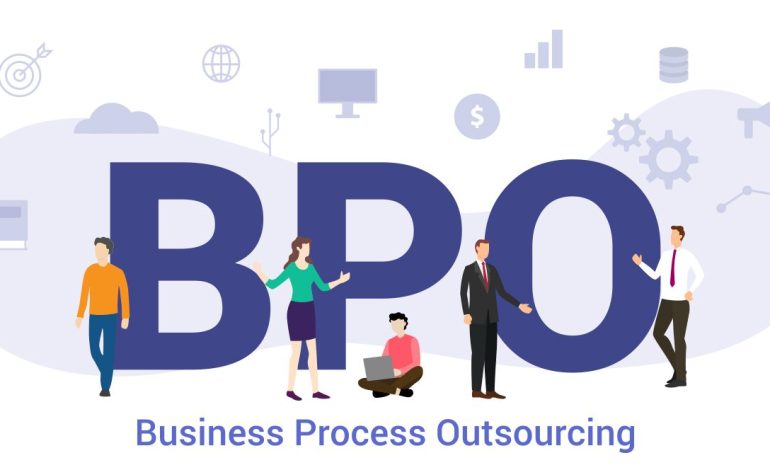The General Data Protection Regulation (GDPR) is a comprehensive data protection and privacy regulation that was enacted by the European Union (EU) and became enforceable on May 25, 2018. Its primary objective is to enhance the protection of individuals’ personal data and provide them with more control over how their data is collected, processed, and used by organizations.
GDPR in a Nutshell: GDPR introduces a set of rules and principles that organizations must follow when handling personal data. It applies to all businesses, regardless of their location, if they process personal data of individuals within the EU. Personal data encompasses any information that can identify a natural person, such as names, email addresses, phone numbers, IP addresses, and more.
Impact on Marketers: GDPR has significantly impacted the way marketers collect, use, and manage customer data. Here’s how it affects marketers:
- Consent Requirements: One of the most notable changes brought by GDPR is the stricter consent requirements. Marketers must obtain explicit and informed consent from individuals before collecting and processing their data. Pre-ticked boxes or assumed consent are no longer valid.
- Transparency: Marketers are required to provide clear and concise information about how they will use individuals’ data. This means that privacy policies, terms of use, and consent forms must be easy to understand and readily accessible.
- Data Minimization: Organizations must minimize the data they collect to what is necessary for the intended purpose. Marketers need to assess whether the data they’re collecting is essential for their marketing activities.
- Right to Access and Portability: Individuals have the right to request access to their personal data held by organizations and to receive a copy of it in a structured, machine-readable format. This requires marketers to have processes in place to respond to such requests.
- Right to Erasure (Right to be Forgotten): Individuals have the right to request the deletion of their personal data. Marketers must have procedures to delete data upon request and communicate this to third-party data processors.
- Profiling and Automated Decision-Making: GDPR regulates profiling and automated decision-making based on personal data. If marketers use automated processes to segment or target individuals, they need to ensure that individuals’ rights are respected and provide avenues for intervention.
- Data Security: GDPR mandates that organizations implement appropriate technical and organizational measures to secure personal data. Marketers must ensure data security throughout their data processing activities.
- Cross-Border Data Transfer: If marketers transfer data outside the EU, they need to ensure that the recipient country offers an adequate level of data protection or use mechanisms like Standard Contractual Clauses (SCCs) to ensure data security during transfer.
- Data Protection Officers: In some cases, organizations, including marketers, may need to appoint a Data Protection Officer (DPO) responsible for monitoring GDPR compliance and serving as a point of contact for data subjects and supervisory authorities.
- Enforcement and Penalties: GDPR introduces substantial fines for non-compliance, which can be a percentage of the organization’s global annual turnover. This has incentivized marketers to take data protection seriously.
The General Data Protection Regulation (GDPR) has brought about a seismic shift in the digital marketing landscape. This comprehensive analysis delves into the multifaceted implications of GDPR on the way businesses conduct digital marketing activities. From its inception to its impact on data collection, targeting, consent management, and cross-border operations, this paper explores the profound changes brought about by GDPR and how businesses have adapted to ensure compliance while maintaining effective digital marketing strategies.
The digital marketing landscape has experienced a significant transformation with the enforcement of GDPR in May 2018. This regulation aims to protect the privacy and data rights of European Union (EU) citizens, impacting businesses that process their personal data. GDPR’s far-reaching effects extend to various aspects of digital marketing, including data collection practices, customer targeting, consent management, and international data transfers.
GDPR Overview: GDPR sets out stringent rules for the collection, processing, and storage of personal data. Its scope extends beyond EU borders, affecting any organization worldwide that processes EU citizens’ data. The regulation defines personal data, data controllers, and processors while introducing principles of lawful processing, transparency, and accountability.
Data Collection and Processing: GDPR mandates that businesses must obtain explicit and informed consent before collecting personal data. This has compelled marketers to rethink their data collection practices, moving from broad consent to granular permissions. The regulation also requires businesses to state the purpose of data collection, leading to greater transparency in marketing activities.
Consent Management: Consent forms a core element of GDPR. Marketers now face the challenge of acquiring unambiguous consent for data processing. Pre-ticked boxes and bundled consent are no longer permissible. Businesses have responded by redesigning their consent mechanisms to be clear, specific, and easily withdrawable.
Impact on Customer Targeting: GDPR has reshaped customer targeting strategies. Marketers must demonstrate legitimate interest or explicit consent for targeting. The era of unsolicited emails and personalized ads without consent has ended. As a result, marketers are focusing on quality over quantity, aiming for engaged and willing recipients.
Marketing Automation and Profiling: Automated marketing processes heavily rely on data analysis and profiling. GDPR mandates that individuals have the right to object to automated processing, including profiling. Businesses must strike a balance between personalized marketing and data protection, ensuring that algorithms respect individual rights.
Cross-border Operations and Third Parties: For businesses operating across EU borders, GDPR necessitates compliance with varying national regulations. Moreover, when collaborating with third-party vendors, businesses are responsible for their partners’ GDPR compliance. This has led to increased due diligence in vendor selection and contractual agreements.
Accountability and Data Protection Officers (DPOs): GDPR mandates the appointment of Data Protection Officers for certain businesses. DPOs ensure internal compliance, act as contact points for data subjects, and cooperate with regulatory authorities. This emphasis on accountability has prompted businesses to establish dedicated privacy teams and conduct regular audits.
Penalties and Enforcement: GDPR introduces severe penalties for non-compliance, including fines of up to a certain percentage of global turnover. Regulatory authorities have demonstrated their willingness to enforce these penalties, compelling businesses to prioritize data protection in their operations.
Innovations in Consent Mechanisms: In response to GDPR’s consent requirements, businesses have developed innovative ways to engage users and obtain consent. Interactive content, gamification, and user-friendly interfaces are being used to facilitate the consent process.
Privacy by Design and Default: GDPR encourages the integration of privacy considerations at the earliest stages of product and service development. Privacy by Design principles emphasize data minimization, security, and user control, fostering a more privacy-conscious digital ecosystem.
The Role of Technology: Technology has played a crucial role in adapting to GDPR. Advanced data encryption, anonymization techniques, and secure data storage solutions have gained prominence, safeguarding both user data and business interests.
Challenges and Future Outlook: Despite its benefits, GDPR implementation poses challenges, especially for smaller businesses with limited resources. The evolving nature of technology and data usage requires ongoing adaptation to regulatory changes. Looking ahead, emerging technologies like blockchain and AI hold the potential to reshape how data is managed and protected.
What are the major impacts of the GDPR?
The General Data Protection Regulation (GDPR) has had a significant impact on various aspects of data handling, privacy, and business operations. Some of the major impacts of GDPR include:
- Enhanced Data Protection and Privacy Rights: GDPR places a strong emphasis on individuals’ data protection and privacy rights. It gives individuals more control over their personal data, allowing them to access, rectify, and even erase their data from databases.
- Stricter Consent Requirements: Organizations must obtain explicit and informed consent from individuals before collecting and processing their personal data. Consent must be freely given, specific, informed, and unambiguous, eliminating the use of vague terms and pre-ticked boxes.
- Transparency and Information Provision: Businesses are required to provide clear and understandable information about their data processing activities. Privacy policies and terms of use must be concise and easily accessible, making it easier for individuals to understand how their data is being used.
- Data Breach Notification: GDPR mandates organizations to report data breaches to the relevant supervisory authority within 72 hours of discovery, and to affected individuals when there’s a high risk to their rights and freedoms. This promotes quicker response and mitigation in case of data breaches.
- Data Protection Impact Assessments (DPIAs): Organizations are required to conduct DPIAs for high-risk data processing activities, helping them identify and mitigate potential privacy risks before initiating such activities.
- Right to Erasure (Right to Be Forgotten): Individuals have the right to request the deletion of their personal data under specific circumstances, and organizations must comply unless there are legitimate reasons to retain the data.
- Data Portability: Individuals have the right to receive their personal data in a structured, machine-readable format, allowing them to transfer it to another organization.
- Accountability and Documentation: Organizations must demonstrate compliance with GDPR by maintaining records of data processing activities and having clear documentation of data protection practices.
- Cross-Border Data Transfer: GDPR imposes restrictions on transferring personal data outside the EU to countries with inadequate data protection laws. Organizations need to use mechanisms like Standard Contractual Clauses (SCCs) or Binding Corporate Rules (BCRs) to ensure data security during transfers.
- Data Protection Officers (DPOs): Some organizations are required to appoint a Data Protection Officer responsible for overseeing GDPR compliance, serving as a point of contact for individuals and supervisory authorities.
- Fines and Penalties: GDPR introduces substantial fines for non-compliance, which can be up to a certain percentage of an organization’s global annual turnover. This has compelled organizations to take data protection seriously.
- Impact on Global Businesses: Even if an organization is located outside the EU, it must comply with GDPR if it processes personal data of EU citizens. This has led to global companies adopting GDPR principles in their operations.
- Changes in Marketing Practices: Marketers have had to adjust their strategies to comply with GDPR’s consent requirements and provide more transparent information about data usage. This has led to a shift towards quality over quantity in customer engagement.
- Innovation in Data Security: GDPR has prompted organizations to adopt better data security practices, including encryption, pseudonymization, and regular security audits.
- Cultural Shift in Data Privacy: GDPR has created a cultural shift towards valuing data privacy and protection, leading to greater public awareness and discussions about data rights and responsibilities.
Overall, GDPR has transformed the way organizations handle personal data, making data protection a central concern and reshaping business practices in the digital age.
Conclusion: GDPR’s impact on the digital marketing landscape is profound and enduring. From data collection to customer targeting, businesses have restructured their strategies to align with GDPR’s principles. As the regulation continues to evolve and new technologies emerge, a balance between data-driven marketing and individual privacy rights will remain a critical concern for the digital marketing industry.
GDPR has fundamentally changed the landscape for marketers by placing a strong emphasis on individual privacy and data protection. While it introduces challenges and requires adjustments in data handling practices, it also promotes a more transparent and responsible approach to customer data, which can lead to increased trust and better long-term customer relationships.


